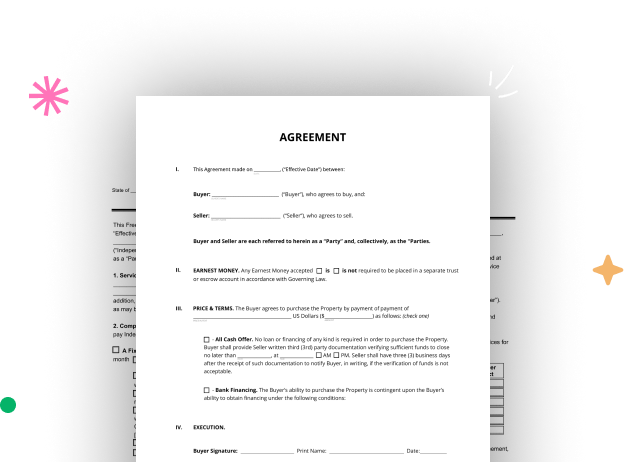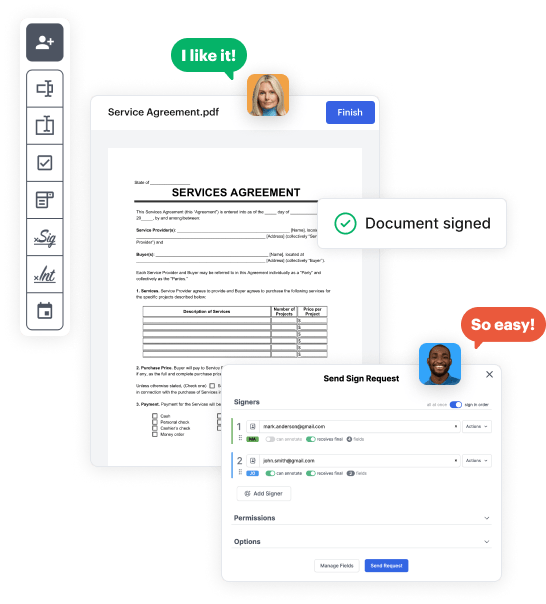

Visit the DocHub website and register for the free trial. This provides access to every feature you’ll need to create your Quarterly Balance Sheet Template with no upfront cost.
Sign in to your DocHub account and navigate to the dashboard.
Hit New Document in your dashboard, and select Create Blank Document to create your Quarterly Balance Sheet Template from the ground up.
Insert various elements such as text boxes, radio buttons, icons, signatures, etc. Organize these elements to match the layout of your document and assign them to recipients if needed.
Organize your document in seconds by adding, repositioning, removing, or combining pages with just a few clicks.
Convert your newly designed form into a template if you need to send many copies of the same document repeatedly.
Send the form via email, distribute a public link, or even post it online if you wish to collect responses from a broader audience.